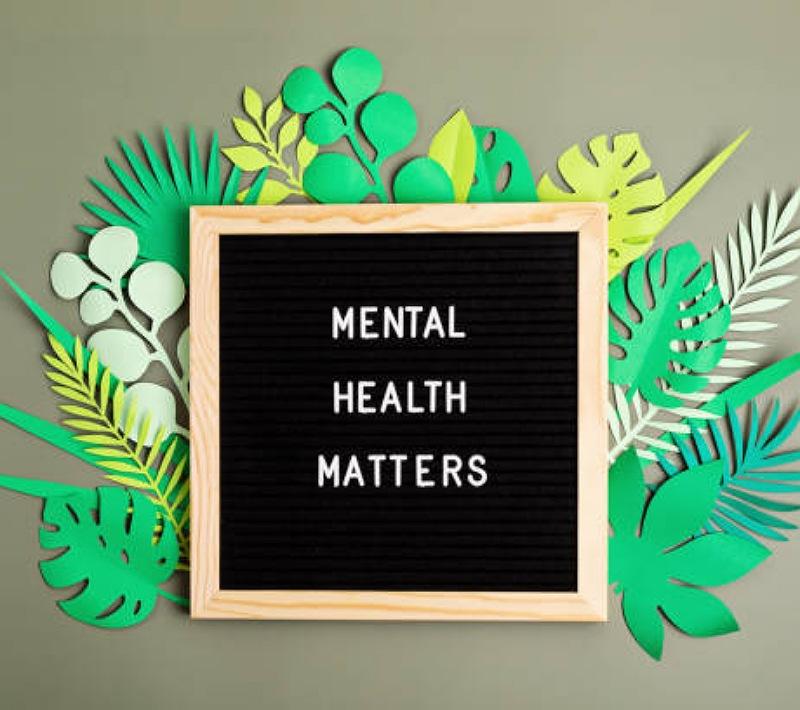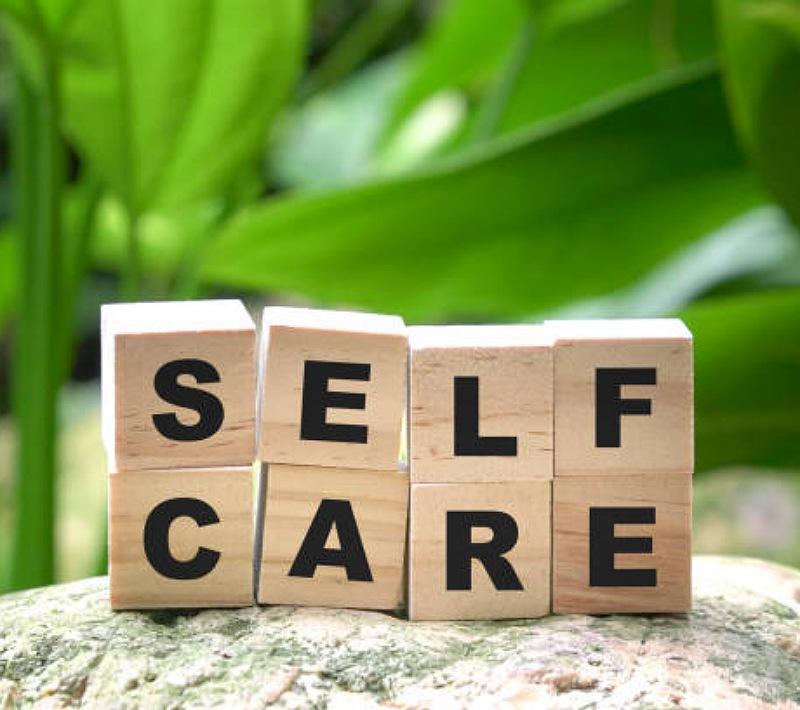How To Care For Your Mental Health During Difficult Times

It’s no secret that the world isn’t a very safe place to be in right now. Between missile attacks from one nation to another, ritual killings to get rich, and oppressive, toxic work environments, it is very difficult to maintain, let alone, take care of one’s mental health.
And although the subject of mental health care does not get enough publicity, it is still a very serious issue that requires urgent attention as it can affect not just the individual, but the society at large.
If you have been finding the recent happenings around you choking and you’ve been watching yourself slowly seeping in and out of depression, this article is for you.
Why Should I Take Care of My Mental Health?

According to the World Health Organization, mental health is “a state of well-being in which the individual realizes his or her own abilities, can cope with the normal stresses of life, can work productively and fruitfully, and is able to make a contribution to his or her community.”
Mental health care entails paying positive attention to your social, psychological and emotional well-being. Whenever any of these three are being attacked, your mental health is at risk because they affect how you act, think and feel.
This is why it is necessary for you to always take out time for yourself, at least once every week, to meditate and reevaluate yourself. Protecting your mental health is your number one duty to yourself. It is self-love in its highest ramifications.
Sometimes, when you experience mental health problems, it could be as a result of hereditary factors, biological factors, or even trauma from a past event. Whatever the reason, you need to know that the problem is not you, and you can enjoy a positive state of mind.
Taking Care Of Your Mental Health During Difficult Times

Practice Self Care
Self care is the best treatment you can give yourself when you are down mentally. It helps you to relax, improves your mood and boosts your energy. Below are some self care tips that can help you stay afloat when you feel yourself sinking:
- Take adequate naps. You would be surprised the amount of damage insomnia can inflict on your brain. Also, when you are sleep-deprived, you tend to get irritated and impatient easily. This impatience can lead to discontent, and you might find yourself hitting rock bottom if you don’t reach out for help. As an adult, your body requires at least 6-8 hours of sleep for optimal functioning throughout the day.
- Exercise. Simply taking a thirty minutes stroll around your neighborhood can do your body a whole world of good. And it is not just physically, but mentally too.
- Make sure you are always hydrated and eating healthy meals. Try to avoid caffeinated drinks and soda. Make sure each meal you eat is balanced and appropriately proportioned. Doing this will really improve your focus and energy all day, everyday.
- Create time for relaxation inside your busy schedule. The importance of taking time out to engage in a relaxing activity cannot be overemphasized. Some of the best self care activities you can give your body include flexes like going to the spa, meditating, yoga, breathing exercises, etc.
- Create daily targets and ensure you tick each one off the box. There is a sense of accomplishment and increase in self value when you create tasks for yourself and you are able to achieve them. Little things like these cause the body to release a hormone called serotonin which makes you happy and even more productive.
However, don’t push yourself too much. Do what you can, and don’t dwell on your inadequacies.
- Consciously practice gratitude. Take out time to count all your wins – the big wins and the little ones. When you make it a habit to note all of your past achievements, it will help you think better of yourself and improve your mental health greatly.
- Stay positive. This may sound weird but the way to beat negativity is by being positive. During your meditation, identify and analyze those negative thoughts that always break you down. When you do that, fight those negative thoughts with positive facts you know about yourself. This is why practicing gratitude is also very important.
- Stay in touch with your loved ones. The love, care and attention of a loved one can save you from the darkest of days. Ensuring that you maintain a mental and physical space of people that genuinely care about you is very essential for mental health care.
Always reach out to a loved one when the going gets rough. It could be a friend, a relative, or even your significant other.
Practicing self care is easier said than done. This is why it is important for you to be patient with your growth.
5 Major Types of Mental Health Treatments

You don’t need to wait till you push all your loved ones away, or start cutting yourself, before you realize that you need to get professional mental health treatment.
Below is a list of various types of mental health treatments you can choose from. Take your time to read through it and decide on the type you feel will work best for you.
1. Residential Mental Health Treatment
This type of treatment occurs in a private facility. Here, patients dealing with mental health problems receive professional care round the clock. Residential mental health treatment is also known as the inpatient mental health treatment, and it is the best option for those that need consistent medical supervision.
This treatment is also best suited for those with severe and long standing symptoms. Especially when outpatient treatments have already been tried but proved unproductive. It involves the following:
- Medication
- Recreational therapies
- Group therapy
- Complementary therapies like meditation and yoga
- Individual counseling
2. Psychiatric Hospitalization
When psychiatric hospitalization is recommended to a person with mental health problems, it means the situation is very severe and the person requires close medical attention.
This type of treatment involves medication, stabilization, administration of nutrition, close monitoring, and any other form of emergency care.
Hospitalizing people with mental health issues may be voluntarily or involuntarily. If a person poses to be dangerous to other people or themselves, it might become necessary for them to get hospitalized.
When the following symptoms begin to show in a person, they might require psychiatric intervention:
- Insomnia over a long period of time
- Hallucinations
- Homicidal or suicidal ideation
- The inability to provide themselves with primary self care as a result of mental health problems
3. Outpatient Mental Health Treatment
Outpatient mental health treatment does not demand that you live in your treatment centre. Instead, patients are allowed to schedule sessions with a therapist or visit the treatment centre on certain days, every week, till they are diagnosed to be ready to stop receiving treatment by the doctor in charge.
This type of treatment is best suited for those that are dealing with only medium symptoms of mental health problems, that have a solid support system outside the clinic, and can survive well outside the confines of their treatment centre.
In other words, they have displayed a certain level of stability and growth since their treatment started. Some of the mental health treatment options offered to outpatients include:
- Family therapy
- Individual counseling
- Group therapy
- Partial hospitalization
- Support groups
- Medications and intensive outpatient medical care
4. Psychotherapy

Psychotherapy, also known as the talk therapy, is an inpatient and outpatient type of treatment that has been tested to perform excellently over the years as regards mental health treatment.
During psychotherapy, a therapist listens to the problems of a person or a group of people, and helps them understand their feelings, so they can know why they are acting in a certain way, and learn how to get better.
Psychotherapy can be carried out in various forms, such as:
- Individual therapy
- Group therapy
- Family therapy
- Cognitive behavioral therapy (CBT)
- Dialectical behavior therapy (DBT): Dialectical behavior therapy is most times used to treat individuals struggling with borderline personality disorder (BPD)
- Interpersonal therapy: this type of therapy helps people to address their problems in forming and maintaining relationships. It also teaches them new interpersonal and communication skills to enhance the quality of their relationships. It can be used in couples counseling.
- Eye movement desensitization and reprocessing therapy (EMDR): EMDR is a type of therapy that is used to treat post-traumatic stress disorder (PTSD).
5. The Dual Diagnosis Mental Health Treatment
Dual diagnosis treatment offers extensive mental health services to people battling both substance use disorder and a mental health disorder.
Dual diagnosis treatment is designed to evaluate and treat both conditions at the same time. In order to achieve complete recovery, both disorders need to be treated simultaneously.
Medication, Support Groups And Alternative Treatments
Medications are generally used during both outpatient and inpatient mental health treatments. Along with psychotherapy, medications can help boost moods and curb anxiety.
Some medications usually prescribed by doctors to their mental health patients include:
- Antidepressants
- Mood stabilizers
- Antipsychotics
- Antianxiety medications
Support groups are also a great way to treat mental health disorders that range from behavioural problems to substance abuse. Support groups also assist with treating addictions like:
- Drug abuse
- Eating disorders
- Alcohol abuse
- Eating disorders
- Shopping, video gaming, gambling, and other behavioural addictions.
Conclusion
Your mental health is your top priority as a human. With the high rate of suicides these days, the topic of mental health care should be given more attention than it is currently receiving. Especially within the black community.
If you are experiencing any of these symptoms, make sure to follow any of the steps listed above. Take care of your body and take care of your mind.
Disclaimer: This article is not a replacement for actual medical advice and self diagnosis is always discouraged. If you feel any of the symptoms applies to you, seek medical help. It is for enlightenment purposes only.
All images are sponsored from istockphoto.com

